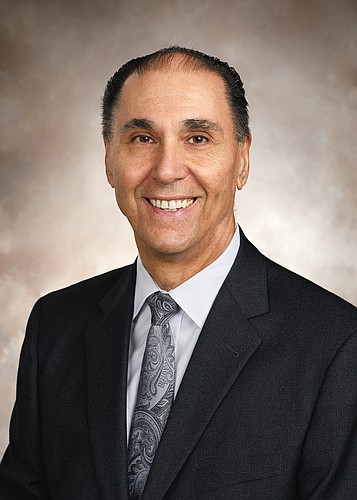- April 7, 2025
-
-
Loading

Loading

Lee Health President and CEO Dr. Larry Antonucci watched a national news show recently with gnawing anxiety. On the show, a hospital administrator in Texas said his facility was at risk of being short multiple machines to treat COVID-19 patients. Not the oft-talked about ventilators, but another device, for heart monitoring.
That Texas official then talked about his worst nightmare: rationing care for patients based on available equipment. “That really scares me, that we won’t have the capabilities to care for the sick people of this community,” Antonucci says. “That just frightens me to death.”